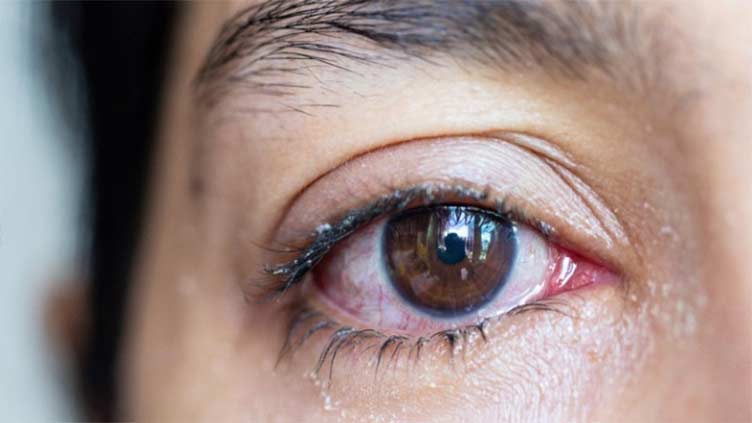Myths and facts: Dry eye disease

Lifestyle may be another important factor
ISLAMABAD (ONLINE) - Certain myths persist that can delay the diagnosis and treatment of dry eye disease.
“Some antidepressant medications work by blocking signals between nerve cells, which can reduce the eye’s natural response to proper tear film production," said Jennifer, Tsai, OD, a board-certified optometrist and founder of LINE OF SIGHT, an eye care practice in New York City. “As a result, this reduces the amount of tears produced, and leads to dry eye.”
Lifestyle may be another important factor.
“Depression and dry eye can often be linked due to external changes,” Tsai said. “Depression can change your habits, resulting in increased screen time and poor eating habits, for example. These changes can lead to increased tear evaporation and, inevitably, dry eye.”
Research has also found that depression can cause changes in the way a patient processes pain, leading to more severe DED symptoms. This can create chronic physical discomfort, which also impacts your emotional state.
“Experiencing difficulty keeping your eyes open, or experiencing blurry vision, can hold you back from activities that bring you joy,” said Forman. “This can lead to more social isolation, and less fulfilling days.”
What Can You Do to Improve Symptoms When Depression and Dry Eye Disease Happen at the Same Time?
Take note of the circumstances that seem to make you feel worse. Talking with a therapist about emotional frustration you feel can be very helpful. Also, “if you develop dry eyes shortly after starting a medication, absolutely let your doctor know about it,” said Forman.
You won’t need to discontinue medication you need, however.
“We never stop antidepressants, because depression is a debilitating disease,” said Dhaliwal. Instead, a new type of medication may be warranted. And your doctor can help you focus on improving ocular symptoms.
“Non-pharmaceutical treatments for dry eye – such as warm compresses and lid hygiene – can help a lot,” Dhaliwal said. “Omega-3 fatty acid taken by mouth can not only help with dry eye, but with mood, too.”
Blinking exercises can help lubricate the surface of your eyes. You can also reduce stress through acupuncture, staying physically active, and eating a healthy, balanced diet.
As Dhaliwal sums it up: “All of these steps can help you feel better, and take better control of your life.”

